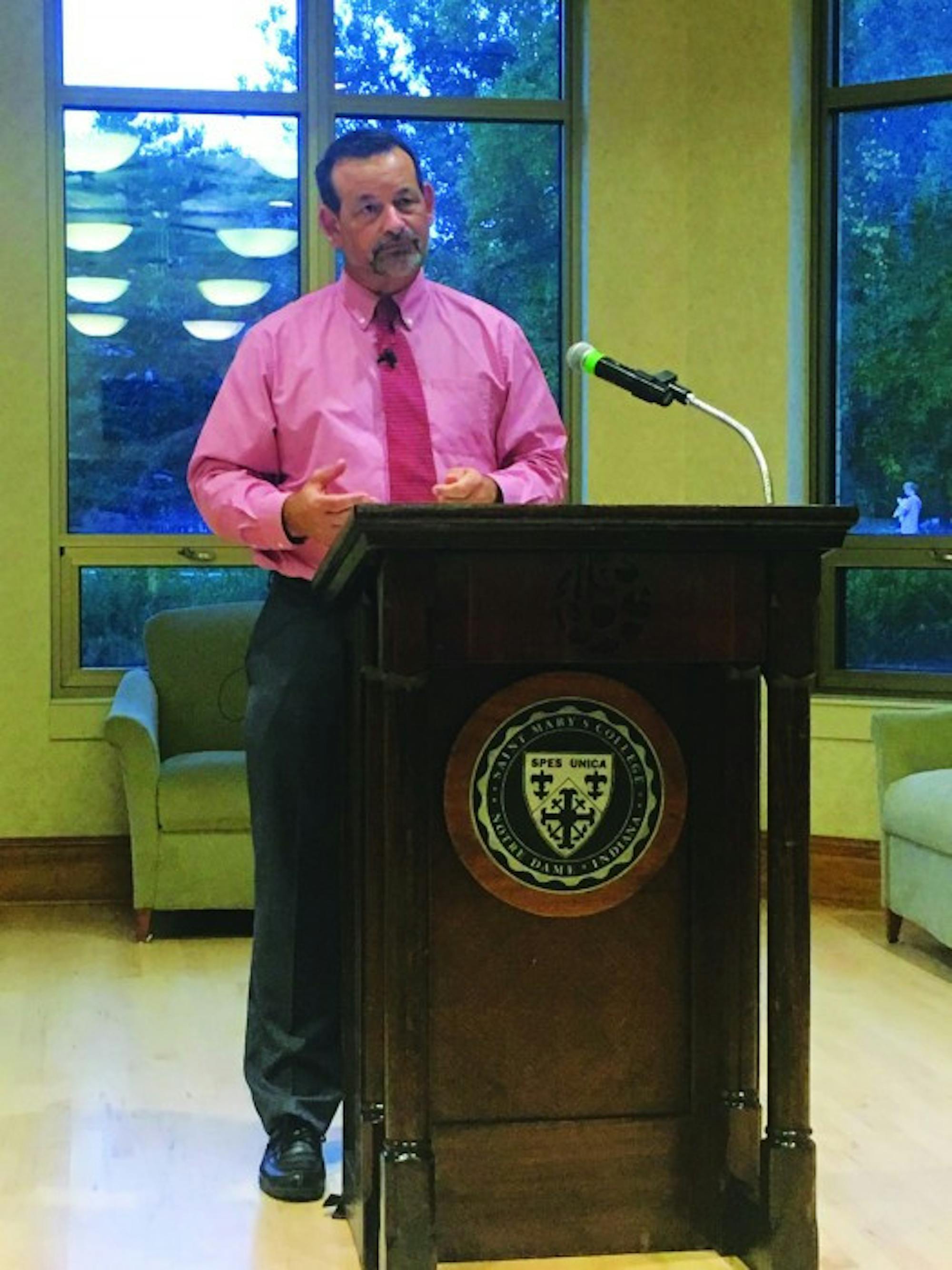Saint Mary’s hosted its annual McMahon Aquinas Lecture in Philosophy, featuring Notre Dame professor of philosophy David O’Connor, on Thursday night. The lecture was titled “Love More Than You Know: The Tao of Thomas Aquinas.”
“The reason I called this ‘The Tao of Thomas Aquinas’ is I want to get away from the doctrines or the arguments of Thomas Aquinas, and get to a way of appreciating Thomas as a kind of spiritual director, as a mentor who leads us systematically on a path of spiritual discipline and spiritual ascent,” O’Connor said.
While developing his lecture, O’Connor said he used it as an opportunity to reflect.
“For me, returning to the text of Thomas Aquinas to think about this lecture has been a rather chastening experience of reflecting on the contemporary times that we live in and also reflecting on me,” O’Connor said.
O’Connor discussed the trend of considering oneself as above his or her contemporaries, especially through the usage of satire and irony.
“Thomas Aquinas gives us many resources to overcome this temptation of self regard, this temptation to pull ourselves above the people we teach, and the people we learn from,” O’Connor said. “In my experience, the dominant form of academic wit is satire and irony. It was many years into my career as a satirist and an ironist before I recognized the moral hazard in that approach to wit.”
Instead, O’Connor proposed that the approach taken should be more akin to feeling gratitude and appreciation for those around us, which he said he finds within Aquinas’s work.
“Thomas’s specific genius is to reflect back to us the complexity of this tradition,” he said.
O’Connor also said Aquinas did not see the vision or knowledge of God’s existence to be up to “the standards of philosophical demonstration,” because it was not something you could easily prove with a theorem. He said it was a different kind of knowledge.
“It’s the kind of knowledge you have when you are willing to love somebody,” O’Connor said. “It’s the kind of knowledge you have when you accept that there is something mysterious in that person you love, and you don’t require that you understand them fully to be understanding of them.”
In addition, O’Connor explored Aquinas’s interpretation that once one begins to comprehend, the wonder they experience fades. He said this is especially notable with the wonder experienced as a result of the recent solar eclipse.
“Thomas carries over from Aristotle the suggestion that your wonder ends when your comprehension begins,” O’Connor said. “Now once you really understand what causes that eclipse, it’s not a wonder anymore. I don’t think that’s true, and I think the recent experience with the solar eclipse shows us that. Things don’t stop being wonderful because we understand them.”
O’Connor closed his lecture reflecting on Aquinas’s philosophy in relation to his idea of comprehension.
“Certainly there are moments when it might seem that Thomas Aquinas’s philosophy makes too great a demand on a kind of demonstrative knowledge on a comprehensive grasp, but overall its spiritual exercise is an exercise in … gratitude, in acceptance,” O’Connor said. “For Thomas Aquinas — it seems to me — philosophy begins in wonder, and it ends in gratitude.”













